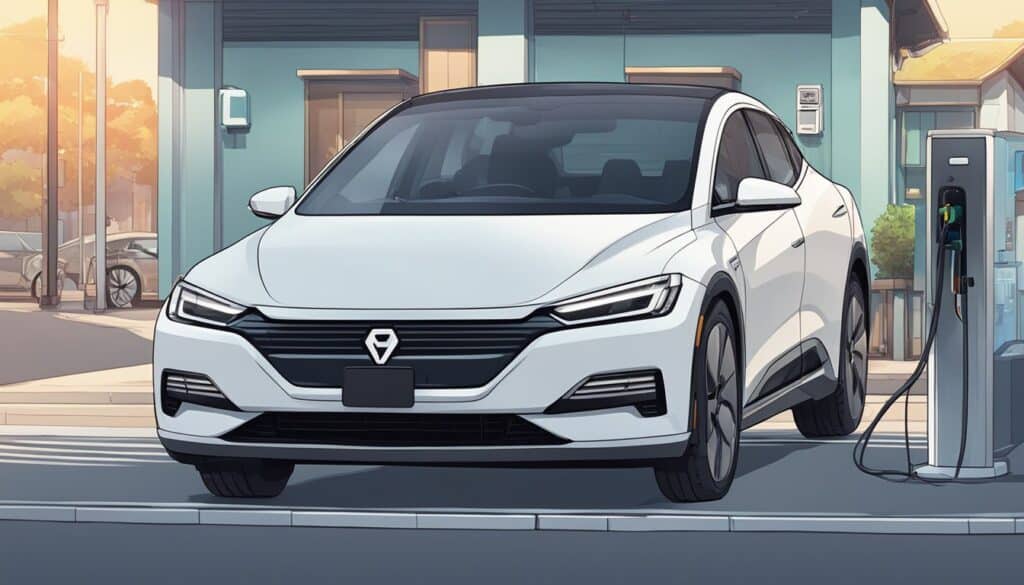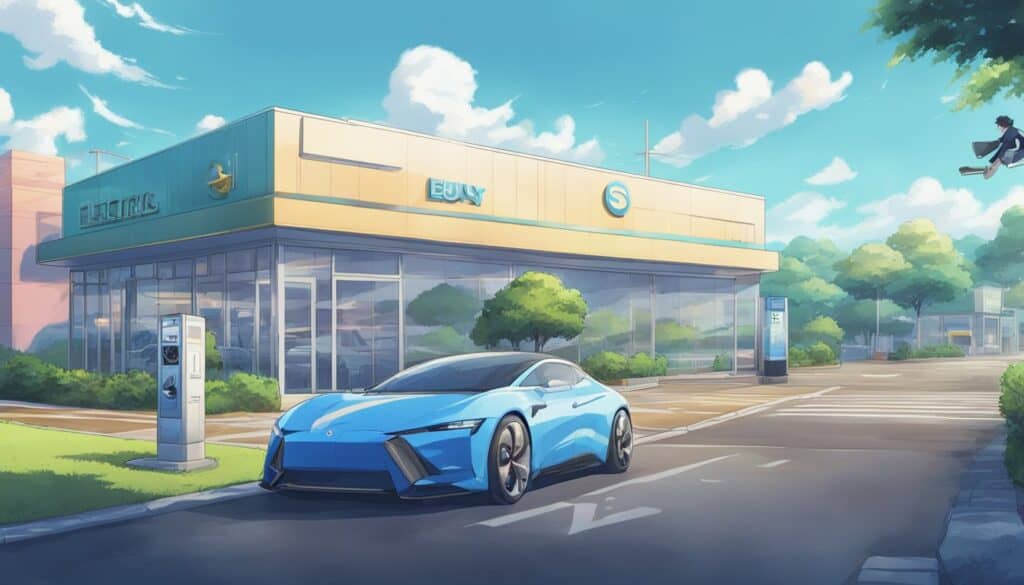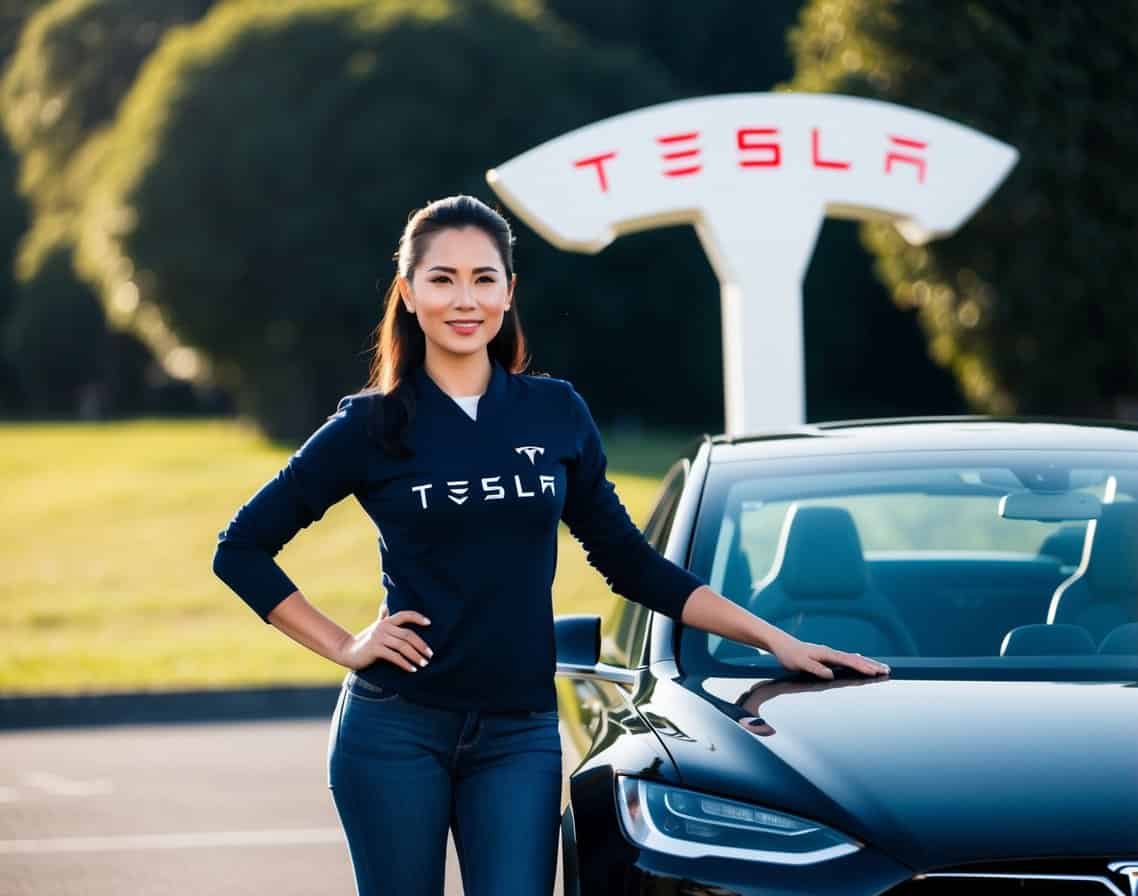Deciding whether to buy or lease an electric car is a significant choice that depends on various factors.
For those who want lower monthly payments and flexibility to switch vehicles more often, leasing an electric vehicle (EV) might be the better option.
Leasing typically involves less financial commitment upfront and may include substantial incentives that reduce costs further.
For instance, some automakers offer up to $7,500 in EV leasing incentives that are not available through buying.
Buying an electric car, on the other hand, provides full ownership and access to the long-term benefits of driving an EV.
When you purchase a car, the full value of the Federal Electric Car Tax Credit, along with state, local, and utility incentives, belongs to you.
This can significantly lower the overall cost of the vehicle, though you might have to wait until you file your taxes to see these benefits.
Additionally, ownership means you can customize the vehicle to your preferences and drive it for many years without worrying about lease-end charges or mileage limits.
What is an Electric Vehicles (EVs)
Electric vehicles (EVs) are becoming more popular due to their advancements in technology and the benefits they offer to owners. Let’s look at the latest innovations and the key advantages of owning an EV.

Advancements in EV Technology
Recent years have seen significant improvements in EV technology. Many automakers are focusing on cutting-edge innovations.
Battery life has increased, enabling longer driving ranges.
For example, some new EVs can travel over 300 miles on a single charge.
Safety features have also advanced. Modern EVs often come with automated emergency braking, lane-keeping assistance, and advanced driver assistance systems.
Charger standards have evolved, making charging faster and more accessible.
Many chargers now support high-speed charging, reducing the time it takes to recharge.
EV Ownership Benefits
Owning an EV provides several benefits. One major advantage is the lower cost of ownership.
Electric vehicles generally require less maintenance than traditional gasoline cars.
For instance, EVs don’t need oil changes, and their brakes tend to last longer due to regenerative braking.
Another advantage is the environmental impact.
EVs produce zero tailpipe emissions, which helps reduce pollution and dependency on fossil fuels.
Furthermore, purchasing or leasing an EV may qualify for various incentives.
There are federal and state incentives that could knock thousands of dollars off the purchase price.
Lastly, many new EV owners enjoy a quieter, smoother driving experience.
Electric motors provide instant torque, leading to fast and smooth acceleration. This makes driving more enjoyable and efficient.
Assessing Financial Considerations
When deciding whether to lease or buy an electric car, understanding various financial aspects is crucial. This includes analyzing the costs associated with each option, exploring available financing and incentives, and considering depreciation and resale values.
Cost of Leasing vs Buying
Leasing an electric vehicle typically requires a lower monthly payment compared to purchasing one.
This is because you are essentially renting the car for a set period, usually 2-3 years, and not paying for the car’s full value.
Upfront costs for leasing can also be lower. This often includes a down payment, security deposit, acquisition fee, and the first month’s payment.
In contrast, buying an electric car involves higher upfront costs since you need to make a larger down payment and secure an auto loan to cover the full purchase price.
Monthly loan payments for buying are usually higher since they cover the car’s full value across a longer loan term.
Financing Options and Incentives
When you opt to buy an electric car, you can take advantage of various financing options such as loans.
Auto loan rates can vary based on your credit score, with better rates available for those with higher scores.
Resources like the TransUnion report and Experian data can provide insights into your credit status.
Leasing an electric car may offer unique incentives such as federal and state tax credits.
For example, some leasing companies can apply the $7,500 federal tax credit directly to the lease, reducing the monthly payments.
Additional rebates or incentives from local governments and utility companies might also be available.
Depreciation and Resale Value
Depreciation is a significant factor to consider.
Electric vehicles often depreciate faster than traditional cars, partly due to rapid advancements in EV technology.
When you lease an EV, you do not bear the risk of depreciation. The leasing company takes on that risk, which is factored into the lease terms.
Once the lease ends, you can simply return the car without worrying about its resale value.
Buying an electric car, however, means that the depreciation directly impacts you.
While you gain equity in the car over time, its value will decrease, especially within the first few years.
If you plan to sell or trade in the car later, understanding this depreciation can help manage expectations for the resale value.
Check out Should I Charge My Electric Car Every Night?
Comparing Lease and Purchase Options
When deciding between leasing and buying an electric car, it’s important to consider key factors such as cost, ownership, and limitations. Leasing generally involves lower monthly payments whereas buying offers the advantage of full ownership and potential tax incentives.

Lease Terms and Limitations
Leasing an electric car usually means lower monthly payments compared to buying. This makes it attractive if you operate on a tight budget.
However, leasing comes with mileage limits, which can vary depending on the agreement. Exceeding these limits usually incurs extra charges.
Customization options are limited when leasing.
You typically must return the car in good condition, and modifications are often not allowed.
At the end of the lease, you have to either return the car or negotiate a purchase option based on the residual value.
Pros and Cons of Buying
Buying an electric car gives you full ownership. This means no mileage limits, and you can customize your vehicle as you like.
Federal and state tax incentives can make purchasing more attractive; for instance, the Federal Electric Car Tax Credit can significantly reduce the purchase price.
The downside is the higher upfront cost and monthly payments if you finance the vehicle.
The car’s value depreciates over time, but you can recoup some value through a trade-in when you decide to buy a new vehicle.
Maintenance costs might also be higher compared to a leased vehicle that typically comes with a warranty.
Pros and Cons of Leasing
Leasing typically involves lower monthly payments and less financial commitment upfront.
This can be beneficial if you prefer to drive a new car every few years or if you want to try out an electric car without a long-term commitment.
Some automakers offer significant incentives to lease, making it even more cost-effective.
Drawbacks of leasing include mileage limits and restrictions on vehicle modifications.
At the end of the lease term, you will have to return the car unless you decide to buy it, which will require a final payment based on the vehicle’s residual value.
This can result in higher costs if you decide to keep the car beyond the lease period.
Check out Can You Tow an Electric Car If It Breaks Down?
EV Models and Manufacturers
Consumers have several popular electric vehicle (EV) models to choose from, each with its own set of benefits. Manufacturer warranties and support options are also crucial when considering an EV purchase or lease.
Popular EV Models
There are numerous electric cars and SUVs that have gained popularity.
The Tesla Model 3 continues to be a top choice, known for its impressive range and advanced technology.
The Nissan Leaf is another well-regarded model, often praised for its reliability and affordability.
Ford’s Mustang Mach-E and the F-150 Lightning have also made significant impacts, blending performance with the utility expected from these brands.
Noteworthy newcomers include models from Hyundai and Kia, which offer competitive pricing and features.
Automakers like Chevrolet with its Bolt EV and Volkswagen with its ID.4 are further expanding options for consumers interested in various price ranges and functionalities.
Manufacturer Warranties and Support
Different manufacturers offer varying warranty and support packages for their EVs.
Tesla provides an 8-year or 150,000-mile warranty for their battery packs and drive units, which offers significant peace of mind.
Ford’s warranty on the Mustang Mach-E and F-150 Lightning includes an 8-year, 100,000-mile warranty for electric components.
Nissan offers a similar 8-year, 100,000-mile warranty for the Nissan Leaf, reflecting industry standards.
Chevrolet and Volkswagen also provide comparable warranties for their electric models.
In addition to warranty length, support services such as roadside assistance and battery maintenance plans vary, and should be considered when choosing a manufacturer.
Reliable support and comprehensive coverage can significantly influence the overall ownership experience for EV buyers.
Ownership Experience
When deciding whether to buy or lease an electric car, it’s important to think about the costs of maintaining and repairing the vehicle, and how it might improve your driving experience.
Maintenance and Repair Costs
Maintaining an electric vehicle (EV) is often less expensive than a gasoline car.
Electric cars have fewer moving parts, which means fewer things can go wrong.
Regular scheduled maintenance mainly includes tire rotations and brake checks, as EVs have regenerative braking that reduces wear.
Repair costs can vary. Some parts, like the battery, are more costly to fix if they fail.
However, most vehicle warranties cover the battery for up to eight years or 100,000 miles, easing some financial worries.
Leasing can also be a smart move since many repair costs might be covered under the lease agreement.
Enhancing Your Driving Experience
Electric cars offer a positive driving experience. They are quiet, provide instant torque, and have smooth acceleration. These features enhance comfort and make driving more enjoyable.
In addition, electric cars are better for the planet as they produce no tailpipe emissions.
Rapid tech changes in EVs mean newer models arrive with better battery life and enhanced features. Leasing allows you to upgrade easily when these advancements occur, without worrying about depreciation or reselling the car later.
Additionally, many regions offer a growing network of charger standards, making it easier to find a charging station wherever you go.
Check out Why Do Electric Cars Accelerate Faster Than Gas Cars?
Future of Electric Cars
The future of electric cars is shaped by market dynamics, technological advancements, and improving infrastructure. Here’s a closer look at the key aspects driving this evolution.
Market Trends and Predictions
Electric vehicle (EV) sales are booming. According to Cox Automotive, growing demand is expected to make EVs a significant portion of global car sales in the next decade.
Automakers are responding by increasing production capacity and launching new models.
New incentives like the Federal EV Tax Credit are likely to accelerate this trend. With more people looking to adopt cleaner technologies to protect the planet, the market for EVs is expanding rapidly.
This shift is not only seen in passenger cars but also in commercial vehicles. The broader acceptance of EVs is reducing costs and making them more accessible.
Evolving Technologies and Infrastructure
The development of EV technology is advancing quickly. Battery technology is improving, providing longer range and faster charging times.
For instance, some new models can charge up to 80% in just 30 minutes at advanced charging stations.
The expansion of charging infrastructure is also critical. More public charging stations are being built, making it easier for EV owners to charge their vehicles.
Innovations in smart grid technology are supporting these developments, allowing for more efficient energy use.
Vehicle modifications are becoming more sophisticated, with features like autonomous driving and vehicle-to-grid capabilities on the horizon. These advancements will contribute to the widespread adoption of EVs, ensuring they are not just a viable option but also a preferable one for many consumers.
Practical Considerations Before Deciding
Making an informed decision about buying or leasing an electric car involves looking at your driving habits, needs, and the environmental impact. Key factors include mileage, personal preferences, and the potential benefits or drawbacks for the planet.
Analyzing Your Driving Habits and Needs
Understanding daily mileage is crucial. Leasing might be better for those with lower annual mileage, as leases often come with mileage limits. If you exceed these, extra fees can add up.
For high mileage drivers, buying might offer more freedom and help avoid extra costs.
Consider personal preferences and what you want from your vehicle. Leasing provides newer models every few years, which can offer updated technology and features. Buying allows for customization and modifying the vehicle as needed.
This is important for those who value a tailored driving experience.
Vehicle restrictions and modification options also matter. Leasing agreements often prohibit modifications, which can be limiting. If you enjoy personalizing your car, buying offers greater flexibility.
Considering Environmental Impact
Electric cars have a lower environmental impact compared to internal combustion engine vehicles. EVs produce fewer emissions, which is better for the planet.
When deciding between buying and leasing, consider the long-term benefits for the environment.
Leasing can help keep up with advancements in green technology. As electric cars improve, leasing allows you to switch to models with better efficiency and lower emissions.
This can result in a smaller carbon footprint over time.
Consider the pros and cons of your decision on a larger scale. Buying supports long-term use and fewer resources spent on manufacturing multiple vehicles. Leasing could mean more production and disposal of cars, which has its own environmental footprint.
Finalizing Your Decision
Deciding whether to buy or lease an electric car requires understanding various financial and practical aspects. Consider both the short-term and long-term costs to ensure you make a choice that fits your budget and lifestyle.
Navigating Deals and Negotiations
When negotiating a lease for an EV, focus on several key matters. Monthly payments will generally be lower compared to buying, making leasing attractive if you prefer smaller outlays.
Always review the mileage cap, as exceeding it can lead to per-mile charges. Additionally, ask about any incentives or rebates.
In contrast, buying an EV means ensuring you get the fair market price. Make sure any potential rebates or tax credits will be passed on to you immediately.
For instance, state and federal incentives can reduce the purchase cost by thousands.
The down payment required for buying can be significant but provides equity in the car. When leasing, check if any down payment or security deposits are required, as these can affect your total expense.
Making an Informed Choice
Buying an electric vehicle provides long-term benefits, such as acquiring equity and avoiding leasing fines.
If you drive frequently, ownership can be more economical due to no mileage restrictions. However, buying can be more expensive upfront due to a substantial down payment and possible higher monthly payments.
Leasing, meanwhile, offers flexibility. If the EV market’s rapid changes concern you, leasing allows you to upgrade to new models every few years without dealing with the steep depreciation of owning a car.
Additionally, leases sometimes include maintenance in the monthly fee, reducing overall hassle.
When making your decision, consider your budget, driving habits, and how quickly you plan to switch to the latest EV technology.
You may also like:
- Why Do Electric Cars Not Have Gears?
- Why Tesla Car Insurance So Expensive?
- Why Tesla Car Is So Expensive?

Hi, I’m Marybeth, an electric car enthusiast living in New York in the USA. As the owner of electriccartalks.com, I love sharing my knowledge on EV tips, battery maintenance, and charging solutions. As a proud Tesla owner, I blend my personal experiences with professional insights to offer valuable information to fellow EV enthusiasts. Through my articles, I aim to empower others to make informed decisions about their electric vehicles. Read more